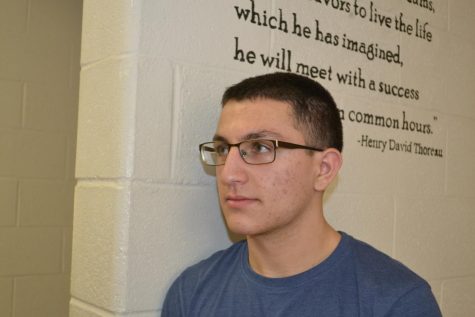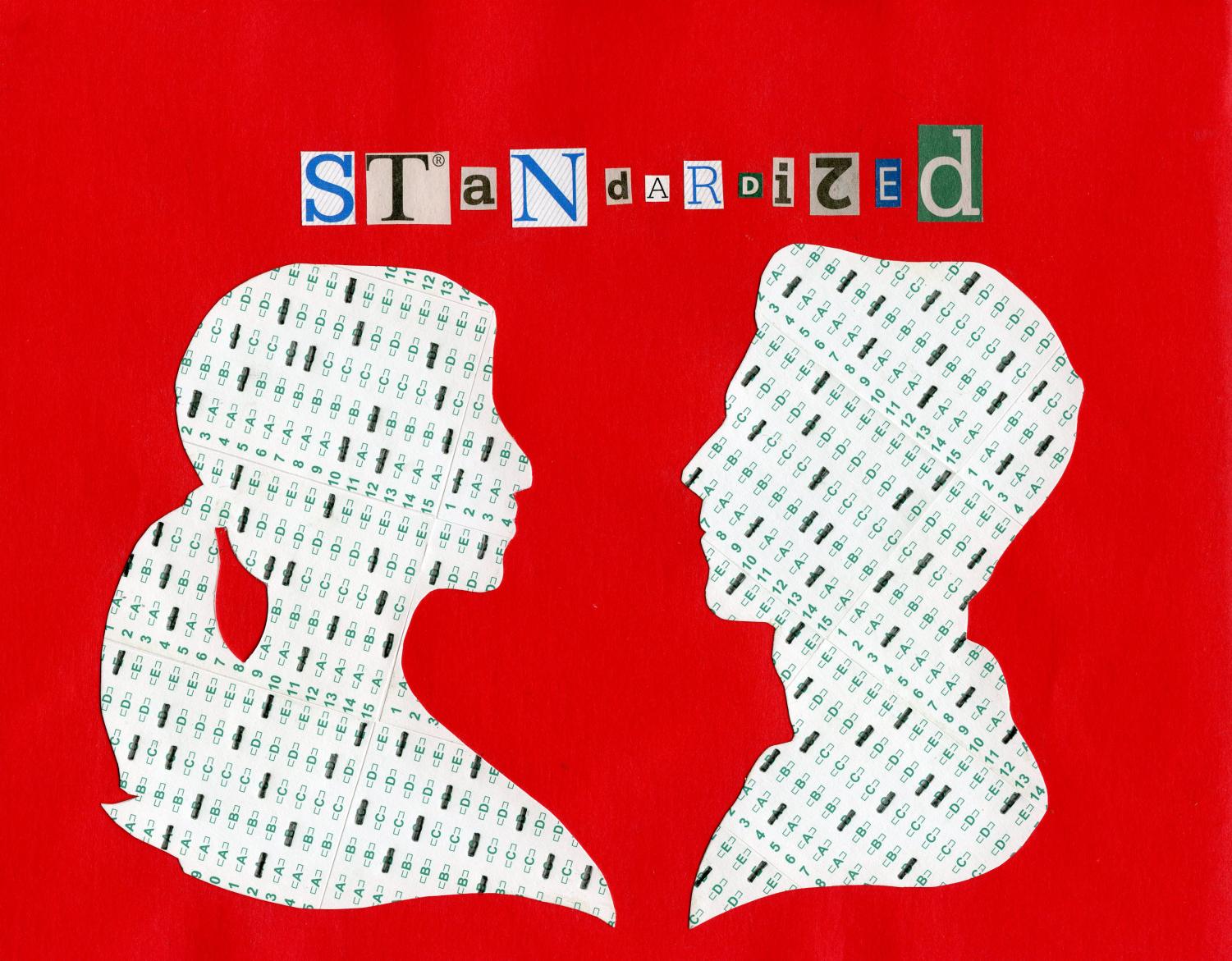
With elimination of the PARCC looming, students sound off on ills of standardized testing
March 2, 2018
Standardized tests are controversial. Students, parents and educators alike have largely opposed tests they say have become increasingly inauthentic gauges of proficiency. The PARCC test, specifically, has seen intense criticism; Governor Phil Murphy has even announced plans to eliminate the test. But why is there now such a pronounced and forceful rejection of a testing regime that has existed for years? What, if anything, can be done to dissolve that disenchantment?
The Wire spoke to administrators and over 100 students to get some answers.
The Purpose of Testing
While there is little consensus regarding how to effectively assess students, most people the Wire spoke to agreed that some form of evaluation is necessary. Ryan Gupta, Director of Curriculum and Instruction, noted the importance of collecting data and analyzing trends in steering educational goals.
“Standardized testing is the only way for students to see how they perform versus other students across the state or country,” he said.
Mr. Gupta also spoke about how PARCC, the standardized assessment currently used in New Jersey, compares to former tests. “PARCC actually provides more information to students, teachers and parents than any standardized test we’ve ever had,” Mr. Gupta said. “The information we received back from HSPA was meaningless. Now we can see specific strengths and weaknesses each student has in several different categories, as well as how he/she compares to other students in the school and the state.”
Mr. Gupta said, however, that tests only paint a partial picture and are meant to be viewed alongside grades, input from teachers and counselors and extracurricular involvement. “Standardized test results are simply additional pieces of student data,” he said.
I do not think they are an effective way to assess students because not all students are good test takers so it’s not fair if there are some really good test takers and some that are not.
—Melanie Turano ’19
My future should not be dictated by a test I take for six hours out of 180 day long school year.
—Kiana Bronder ’20
In such a stressful environment, most students can’t show their true abilities and will not succeed.
—Yasmin Cardoso ’20
The Staunch Opposition
Despite the merit of collecting data and plotting trends, most students opposed standardized testing. In a poll of 132 students, 41 percent of respondents disagreed with the statement “Standardized tests adequately reflect student knowledge and ability.” Another 36 percent said they “strongly disagree.” Only 23 percent of students either agreed or strongly agreed with that statement.
Students listed everything from time limits to the pressure of exams to disparate test-taking ability among classmates as the origin of their opposition. Many said results are essentially void. Mr. Gupta suggested that the rollout of recent tests in such a technologically connected society allowed criticism to proliferate unlike in the past. “I believe the controversy over PARCC exploded because of the Internet, social media and because of its dramatic increase in the level of difficulty,” Mr. Gupta said. “Because it was so challenging and the source of so much anxiety among students and parents across several states, the PARCC assessment became the ‘poster-child’ for everything wrong with standardized testing. Anti-PARCC websites and posts were everywhere and it definitely impacted our communities.”
Standardized tests have also received considerable backlash for their connection to teacher ranking and performance review. When asked to respond to the statement “Standardized tests adequately reflect teacher ability,” 71 percent of polled students either disagreed or strongly disagreed. The consensus among students the Wire spoke to was that a teacher’s effectiveness is simply too multidimensional to adequately assess statistically.
Mr. Gupta suggested that the haze of controversy surrounding and resentment for tests such as the PARCC is enough to disqualify them as effective assessors of teacher ability. “It would also be great to see teachers not being evaluated based on assessments that students may or may not take seriously,” Mr. Gupta said.
Increasing Difficulty of Exams
Much of the opposition to current tests, as Mr. Gupta noted, has to do with their rigor. Though Mr. Gupta said he has never believed in any “brand” of test, he does believe “in tests that are challenging and that assess the content and skills that are taught every day in West Essex classrooms.”
“We always teach to the state standards, and PARCC assesses those same standards,” Mr. Gupta said. “So for West Essex, I believe PARCC is a valid assessment and our students are prepared to handle that type of test.”
Students overwhelmingly rejected the assertion that standardized tests assess skills taught in the classroom. Many students said the content on the PARCC test, in particular, is abnormally difficult and often foreign.
Other students said that while tests such as the PARCC may not mimic what goes on in the classroom, they are not unreasonably challenging.
I️ don’t feel prepared for tests such as the PARCC.
—Natalie Carnovale ’20
The tests never reflect what I learned in my classrooms.
—Marianna Picallo ’20
We are not prepared for the PARCC at all and know nothing for it.
—Marisa Defranza ’19
It’s impossible. It’s like nothing we have ever taken before.
—Hailey Vincelette ’19
I don’t think it’s that difficult. It’s just that you have to think in a different way than you think normally in your English class or your Math class.”
—Julia Parzecki ’19
Test Results and Student Effort
Though West Essex boasts a number of academic achievements encompassing everything from teacher quality to exceedingly high AP test scores and graduation rate, its performance on the PARCC test has been less than impressive.
Of eleventh graders who took the English exam in 2017, just 33 percent met or exceeded the grade level expectation.
55 percent of Algebra I students met or exceeded expectations, as did just 38 percent of Geometry students and 30 percent of Algebra II students.
While there are certainly a number of factors that impact student participation on such tests, there is good reason to believe that some West Essex students, like many across the state, are not trying particularly hard. Though 70 percent of polled students said they do give their best effort when taking a standardized test such as the PARCC, the 30 percent remainder is notably high for a school with the standards and achievement record of West Essex.
Mr. Gupta said that, given the preparation students receive at West Essex, there is no reason to blow off a standardized test. “Except for special cases, all students should take PARCC and do their best,” he said. “It is just like any other challenge. You can face it or avoid it. To sit in a classroom and do nothing for hours and then later receive test results that mean nothing is absurd to me. Why not try your best, see what your strengths and weakness are and represent your school the way you should?”
Since the PARCC test has not yet become a graduation requirement—it will become one for the class of 2018—multiple students told the Wire they saw little incentive to expend much energy in taking it. Already shrouded in criticism, the test proved more a chance to express dissatisfaction with the direction of corporate education than to realistically assess student ability.
Mr. Gupta, though understanding of opposition to testing, said students should represent their school in a fair and genuine light. “When I see other districts ranked higher than us because of PARCC scores, the competitive person comes out in me,” Mr. Gupta said. “I know our students are better academically than what PARCC shows because SAT scores, AP exam results and college acceptances prove it. The fact that a magazine or media outlet will rank us lower academically because many of our students clicked through the test in 10 minutes or didn’t take the PARCC seriously infuriates me. That is simply not who West Essex is.”
For a detailed breakdown of the high school’s performance on standardized tests, visit: https://www.westex.org/cms/lib/NJ01001533/Centricity/Domain/14/BOE%20Assessment%20Report_Oct%2016%202017.pdf
An uncertain future: What will replace the PARCC?
While the PARCC assessment is set to become a graduation requirement next year, newly elected New Jersey governor, Phil Murphy, has said he will look to eliminate the test completely, ending what he calls “the era of high stakes, high stress standardized tests.”
Good teachers and good students can have bad test days. Too much emphasis is being put on a single test, as opposed to weighing a student’s progress through years of instruction.
—Governor Phil Murphy, campaign website
Mr. Gupta said that New Jersey will likely engineer its own state-mandated assessment. “It will borrow ‘PARCC-like’ questions and probably remain an online test with a similar format from what we see with Pearson,” Mr. Gupta said. “Regardless of the new name, I believe the state assessment will be very similar to the PARCC.”
Students favored more encompassing assessments as opposed to any test at all. Many said a year’s worth of grades should be enough to make conclusions about student preparedness, and objected to replacing the PARCC with any form of assessment at all. Some proposed more holistic reviews such as group work, projects or essay writing.

